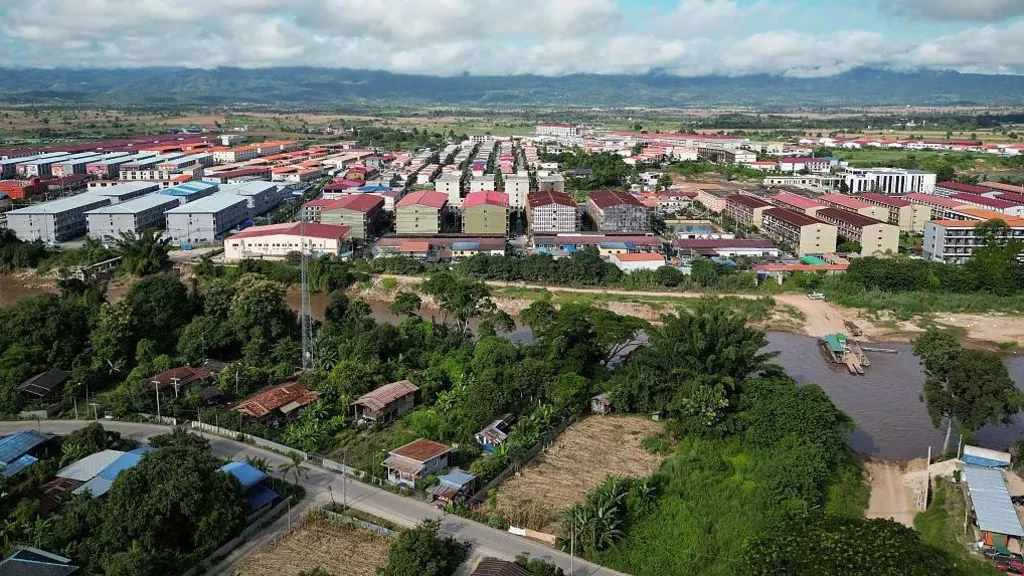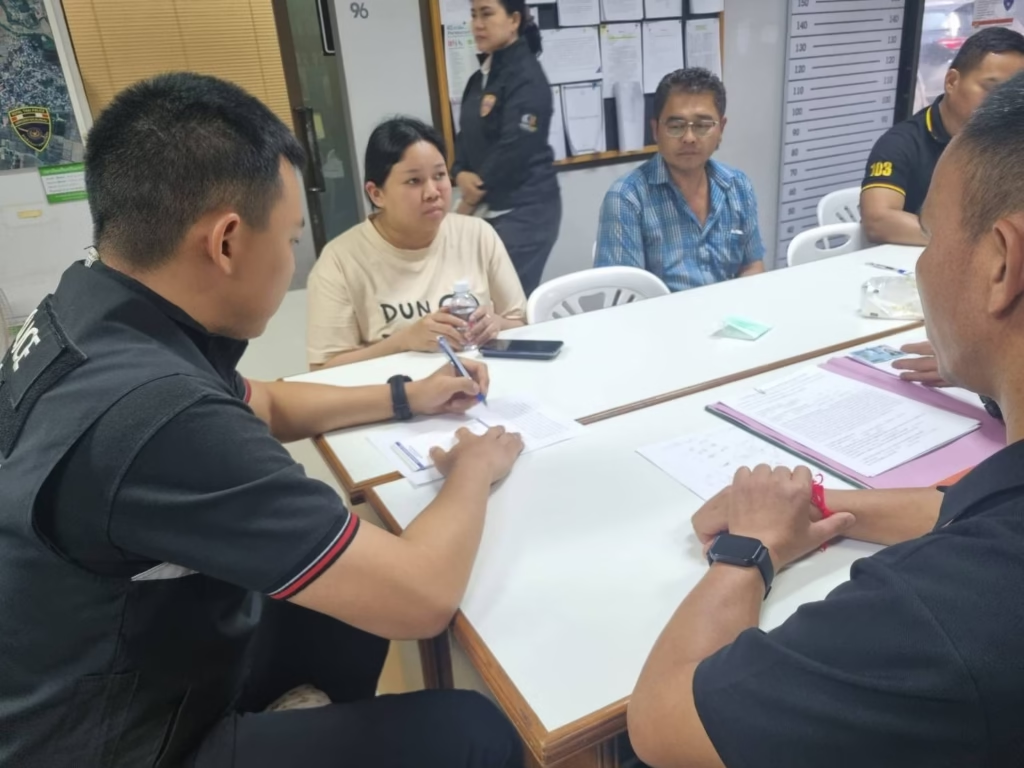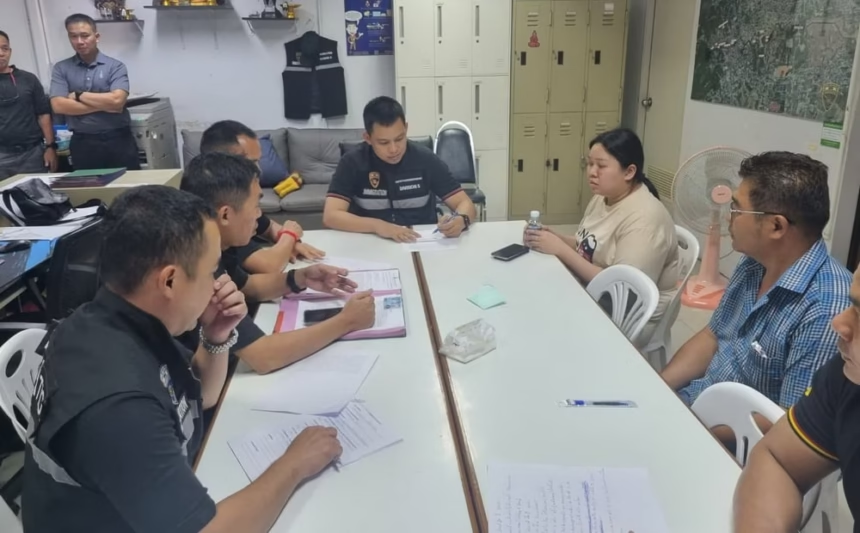CHIANG RAI – A 29-year-old Malaysian woman has been rescued from a Chinese scam gang in Myanmar after three years in captivity. The operation followed joint efforts by authorities in Chiang Rai and The Mirror Foundation, a victims’ advocacy group.
The rescue began on 27 October, when the woman’s family contacted The Mirror Foundation in Thailand. They reported she was being held in Tachilek, a border town across from Chiang Rai Province. The foundation swiftly notified the National Police’s Subcommittee on Public Relations for Technology Crime Prevention.
Pol. Lt. Gen. Trairong Phiwphan, Deputy Director of the Technology Crime Suppression Center, instructed Pol. Maj. Gen. Kritatchai Bamrungrattanayos, Commander of Technology Crime Investigation Division 4, is to start an inquiry, even though the victim is a foreign national.
At 9:30 a.m. on 29 October, Chiang Rai immigration officials confirmed the woman, identified as Miss Lam, had been freed by her Chinese captors and had presented herself to Thai authorities.
According to her account, she lived in Malaysia when her mother suffered a stroke, and the family ran out of savings due to medical costs. While searching for work online, she saw a Facebook post offering waitress jobs in Singapore.
She met an agent to sort work permits, but was abducted in March 2022 and forced into a vehicle. Her captors drove her through Thailand via Mae Sot in Tak Province, then smuggled her across a natural crossing into Myanmar.

She was taken to KK Park in Myawaddy, Karen State, a known base for cyber scam operations.
For three years, she was denied phone access and any contact with the outside world. She was forced to run investment fraud schemes and, at times, translate for others. When she failed to trick targets, guards beat her with water pipes, which happened at least ten times.
She was later sold to another site, Huanya Park. In June 2025, her captors moved her to a mountain location before transferring her to Tachilek, across the river from Mae Fah Luang District in Chiang Rai.
Her captors then contacted her family and demanded 200,000 baht, about USD $6,200, for her release. The family sought help from The Mirror Foundation, which worked with Thai authorities to engage with officials in Myanmar.
Between 4:00 and 5:00 a.m. on 29 October, Myanmar military personnel brought her across the Mekong River into Chiang Rai. She then surrendered to immigration officers.

Pol. Lt. Gen. Trairong said she would undergo initial screening with officials from the Ministry of Social Development and Human Security, investigators, and immigration officers to confirm her status as a human trafficking victim.
He said the first stage should be swift, likely one to two days, followed by a formal assessment with psychologists and social workers.
Once officially recognized as a victim, she will be informed of her protection rights, and the Malaysian Embassy will be contacted to arrange her return. After screening, she will be sent to the Victim Screening and Services Center in Chiang Rai for recovery and rest, which usually lasts between one and fifteen days, depending on her condition.
The Brutality of Chinese Scam Gangs in Myanmar
Chinese crime groups have turned parts of Myanmar, especially along the Thai and Chinese borders, into vast scam hubs that mix online fraud with human trafficking, forced labour, and severe abuse.
These syndicates, shielded by corrupt militias and elements of the Myanmar junta, target people across the world. Victims include Chinese nationals, Africans, Indians, and Southeast Asians. What started after COVID-19 as online con networks has grown into a major human rights emergency. As of early 2025, estimates suggest 100,000 to 120,000 people are held in these compounds.
Violence is routine and organized. Workers report torture, starvation, sexual abuse, and even killings for missing targets or trying to flee. The overview below draws on recent reporting and survivor testimony.

Recruiters bait victims with fake job offers, often high-paying roles in tech, entertainment, or hospitality. These offers spread through social platforms or agents in countries such as China, India, Kenya, and Nigeria.
Once hooked, victims are trafficked across weak border points into lawless zones in Myanmar, including Myawaddy township in Kayin (Karen) State and KK Park near Thailand.
Inside fortified compounds that look like industrial parks, captives are forced to run pig-butchering scams. They build trust with targets online, then drain savings through fake romance, investment, or crypto schemes.
In late October, Myanmar’s military bombed scam buildings in KK Park, which led to the release of more than 2,000 workers, including Indians, and pushed over 1,000 scammers into Thailand.
Crime groups have since shifted activity to Payathonzu, taking advantage of rebel-held territory. The civil war that followed the 2021 coup created space for these syndicates. Border towns have turned into crime cities that generate billions each year.
China has cracked down on some networks, with over 40,000 deportations reported between 2023 and 2024. Alleged links between certain gangs and Chinese intelligence have complicated a full-scale response. Global victims lose billions, and calls continue for the United States to help build a multinational task force.
Related News:
Chinese Scammers Escaping KK Park Drown While Crossing River to Thailand














